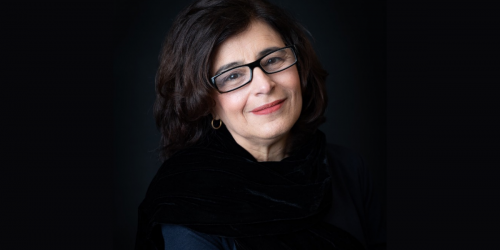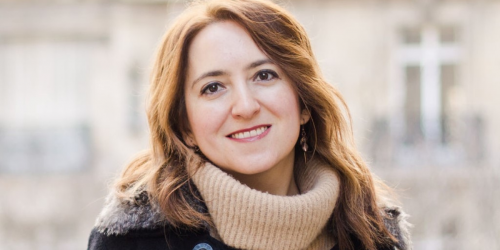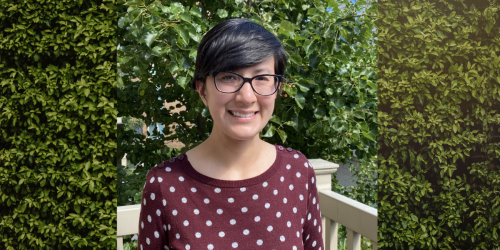
Inventing the future: natural language processing and mathematics
Lucy Alumna Dr Valeria de Paiva (PhD Mathematics, 1984) tells us about her studies, interdisciplinary career and her efforts to make maths accessible…
Lucy alumna Marianna Kopsida (PhD Engineering) on her interdisciplinary career, solving problems and addressing challenges
I have studied civil engineering in Greece, obtaining a Master of Science degree in Engineering Project Management and a MEng-BEng in Civil Engineering from the Aristotle University of Thessaloniki, Greece. After I completed my Masters I was looking for my next step. At that time, and while I wasn’t actively looking for a PhD, an opening was forwarded to me from one of my professors about a PhD in Construction Information Technology at the University of Cambridge. What really intrigued me and got me interested in it was the fact that it had to do with automation in construction and utilization of technology to improve processes in the construction industry. So I applied and got accepted!
I did my PhD in Engineering at the Construction Information Technology group of the Laing O'Rourke Centre, as a Marie Curie Research Fellow. My research was focused on Automated Progress Monitoring using BIM & a Mobile Device in an Augmented Reality (AR) Environment. The topic aimed to assist inspection and progress monitoring for interior activities in a construction project and part of my research was conducted at the Georgia Institute of Technology in Atlanta. After my PhD, I joined Trimble, with whom we were also collaborating during my PhD studies – so it was the next logical step for me. Trimble is a technology (software and hardware) provider to various industries like construction, transportation, surveying and mapping, agriculture, etc. Within Trimble, I completed a rotational programme where I had to change four different positions and roles in different teams, which gave me a great exposure and I was also able to enhance my skills. The duration of the programme was two years and I did my rotations with the Mixed Reality team, Tekla (structures), NM Group (energy) and Geospatial. Currently, I work for the Geospatial division as Advanced Solutions Manager 3D with a focus on digital construction workflows, AR, and digital twins.
Since I was a kid I liked science and mainly how science is applied in our world to solve challenges and improve our lives. Civil engineering was very close to that in my head. Greece is a highly seismogenic country and I experienced a big earthquake myself. Noticing how buildings behave during an earthquake intrigued me and it was another reason why I decided to choose civil engineering with an expertise in structural engineering. Later on, I was also inspired to look into project management which is a very big part of a successful construction project - hence my decision to also complete a masters in engineering project management. As I stated in the above question too, a very appealing opportunity came up for a PhD next. I always liked research, and applying technology in the construction industry towards automation was also something of a great interest to me. Studying at Cambridge, which is such a prestigious university, and conducting part of the research in the US and at Georgia Tech was also a big plus.
I think my current career in Trimble and my current position contains aspects from all the above: understanding of civil engineering, structures, construction management, and technology to improve productivity, accuracy, and quality.
My key motivation is the same as when I started: how can we solve problems or how can we address challenges? But the focus now is how we can use technology to improve construction workflows. I envision a more digital construction industry.
The “funny” thing is that when I applied to Cambridge I didn’t properly understand the concept of colleges so not knowing what to write in the application, I left the “college” option empty. So, basically, it was Lucy that chose me and I am very happy about it.
Lucy provided a very cosy environment which I appreciated. They had also helped a lot with practical things like accommodation. And the food was great.
The best thing for me, though, was the people within the college, especially my tutors who helped and supported me in challenging times (which during a PhD there are plenty!). So I would like to say a big thank you to Dr. Susan Jackson – I want her to know that her support has been very much appreciated.

Lucy Alumna Dr Valeria de Paiva (PhD Mathematics, 1984) tells us about her studies, interdisciplinary career and her efforts to make maths accessible…

Lucy alumna Natalya Shulga (Real Estate Finance) tells us how she achieved her academic and professionals goals

Lucy Alumna Diane Furstenau (Politics, 2010) on pursuing her dream career in human rights